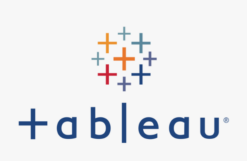Duration: 5 days – 35 hrs.
Overview
This comprehensive Node.js and React training course is designed to equip participants with the skills needed for full-stack development using these popular technologies. Participants will gain hands-on experience through practical exercises and a final project, ensuring they are ready to build robust and scalable applications.
Objectives
- Gain a solid understanding of Node.js and React fundamentals.
- Explore the basics of modern JavaScript (ES6+) and their relevance in building web applications.
- Master the core concepts of Node.js, including event-driven programming, asynchronous operations, and the utilization of core modules.
- Develop proficiency in building RESTful APIs using Express.js.
- Acquire proficiency in React.js, from setting up the development environment to building dynamic user interfaces.
- Understand JSX syntax, React components, state management, and the use of React Hooks.
- Learn to connect Node.js and React to build full-stack applications.
- Explore data fetching techniques using Axios and Fetch.
- Dive into advanced React concepts, including state management with Redux, navigation using React Router, and authentication/authorization mechanisms.
- Implement unit testing for React applications using Jest.
- Develop skills in debugging Node.js and React applications effectively.
- Learn the deployment process for Node.js and React applications.
- Understand Continuous Integration and Continuous Deployment (CI/CD) pipelines with GitHub Actions.
- Apply learned concepts in a hands-on capstone project.
- Present and review the final project for practical application and code quality.
- Explore best practices in Node.js and React development.
- Understand techniques for optimizing performance in web applications.
- Engage in practical exercises, quizzes, and a final project to reinforce learning.
- Receive a Certificate of Completion upon successfully mastering Node.js and React development principles.
Audience
- Web Developers
- Full-Stack Developers
- Front-End Developers
- Back-End Developers
- Tech Enthusiasts
- IT Professionals
- Project Managers
Pre- requisites
- Participants should have a foundational understanding of HTML, CSS, and JavaScript.
- A basic understanding of modern JavaScript features, such as arrow functions, template literals, and destructuring, is recommended.
- Participants should be comfortable setting up a web development environment, including code editors and version control systems.
- Basic familiarity with command-line interfaces (CLI) is beneficial for executing Node.js and npm commands.
- Familiarity with front-end development concepts, such as components and state, will be advantageous for grasping React.js principles.
Course Content
Introduction to NodeJS Platform
- The NodeJS Architecture
- Installation and configuration
- The node CLI commands
- The node package manager and its NPM commands
- The package runner or NPX
Creating the NodeJS project
- The directory structure
- The package.json file
- The project versioning specification
- The node global variables
- The nod errors
Learning the built-in modules
- The path module
- The os module
- The http module
- The commonjs module
- The es module
- The events module
- The fs module
Learning the server-side JavaScript (ECMASCRIPT 10-14)
- The comments
- The object types (data types)
- The special types
- Comparison operators
- Creating an object
- Using the conventional JS syntax
- Using the anonymous function
- Using the constructor function
- Using the class keyword
- Creating a getter-setter
- Creating a JSON object
- Creating arrays
- Programming constructs
- The if and if-else constructs
- The while-loop
- The typical for-loop
- The for-in loop
- The for-of loop
- Implementing a function
- Typical function
- Anonymous function
- Arrow functions
- Appling functional programming
- Exception handling mechanism in JS
- Managing NodeJS modules
- Error handling in NodeJS
- Event handling
- Building NodeJS generators
- XML and JSON processing
- Asynchronous programming
- Callback methods
- Promises
- Async/Await
- The RxJS and Reactive Programming
- Introduction to express.js framework for APIs
Learning the React Framework
- Creating the React projects
- Installing the modules React and React-DOM
- Understanding the Babel modules
- Understanding the project structure
- Creating the Root component and the index.html
Understanding the JSX language
- Creating custom components
- The class components
- The Functional stateless components
- Creating Reusable JSX components
Creating the props
- Creating the state
- One-way and Two-way binding
- Knowing the React life-cycle events
- Creating custom events
Advanced React concepts
- Implementing form handling transactions
- Using Axios and Fetch modules to consume REST services
- Implementing advanced components
- Applying CSS support
- Implementing Redux
Learning the NextJS platform
- Difference between React and NextJS
- Setting up the NextJS project
- Implementing server-side rendering
- Implementing static file serving
- Creating various routes
- Implementing imperative routes
- Creating dynamic routes
- Creating shallow routing








